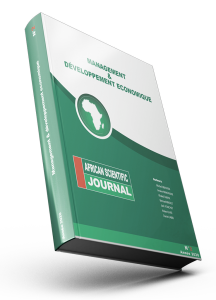Measuring the impact of climate change on cereal production in Sub-Saharan Africa
DOI:
https://doi.org/10.5281/zenodo.13818445Keywords:
climate change, cereal production, irrigation, Sub-Saharan Africa, FGLS modelAbstract
Abstract
The aim of this study is to measure the impact of climate change on cereal production in Sub-Saharan Africa. It was based on average monthly rainfall and temperature over the crop period, and annual data for other variables over the period 1990 to 2022. Three estimation methods were used, including fixed-effects and random-effects models, and the Feasible generalized least squares (FGLS) model. The results of the FGLS model showed that rainfall has a negative effect on maize production. On the other hand, the results revealed an ambiguous effect of temperature on the production of different cereals (positive for millet and rice production and negative for maize production). In order to reduce the adverse effects of climate change on agriculture, this study justifies the need for Sub-Saharan African countries to increase investment in irrigation practices and to encourage investment in agricultural innovation projects.
Keywords: climate change, cereal production, irrigation, Sub-Saharan Africa, FGLS model
Downloads
Published
How to Cite
Issue
Section
License
Copyright (c) 2024 African Scientific Journal

This work is licensed under a Creative Commons Attribution-NonCommercial-NoDerivatives 4.0 International License.





















